ISSUES THAT MATTER
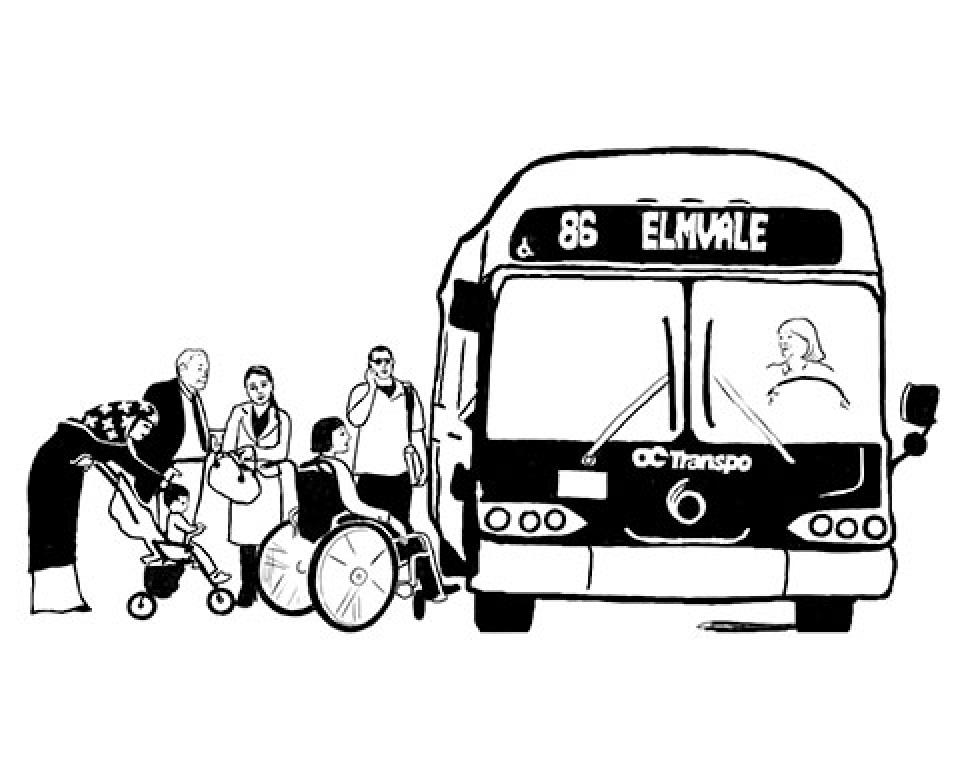
AFFORDABLE TRANSIT
IT’S TIME for everyone to access affordable transit
Why It Matters- Communities thrive when people can move around easily.
- OC Transpo provides an especially critical link for those who have limited choices—including the young, elderly, people with disabilities and lower-income Ottawans.
- When everyone has access to safe, affordable transit, it contributes to Ottawa’s social wellbeing and economic prosperity.
- No one should have to pass up going to the doctor or visiting a friend because they can’t afford to travel within Ottawa.
- Our public transit system should empower those who have limited choices—including youth, elderly, people with a disability, and lower income Ottawa residents.
- Will you establish a long-term (10-20 year) National Transit Strategy with funding commitments made to municipalities for each year so they can make public transit more affordable for riders?
- Will you commit to regular meetings with provincial and municipal governments to plan and implement public transportation solutions?
- Without consistent federal funding for transit, cities can’t afford to have good transit that is affordable for everyone.
- Rising bus fares make it challenging for people on low incomes to afford public transit.
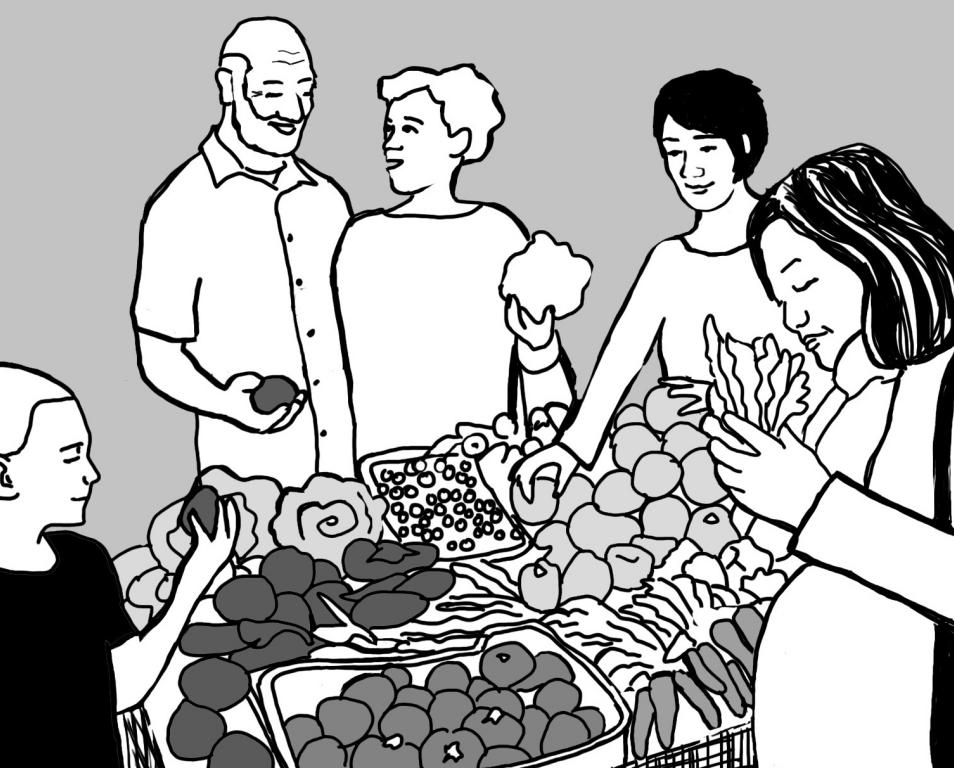
GOOD FOOD FOR ALL
IT'S TIME for a federal food policy that guarantees universal access to adequate amounts of healthy, affordable and culturally appropriate food.
Why It Matters- Communities are healthy when its citizens eat good food.
- Food affects everyone, all day, every day.
- All residents deserve access to, and the right to choose good food; that is, food that is fresh, accessible, affordable, minimally-processed, as local as possible and culturally relevant.
- People shouldn’t have to choose unhealthy food to feed their families because they can’t afford fresh, nutritious food.
- All children deserve to eat fresh, nutritious food so that they can grow up healthy.
- Everyone deserves to eat enough healthy food so that she/he can lead active, healthy lives.
- What steps will you take to establish a National Right to Food Policy to eliminate hunger in Canada?
- Will you increase federal investment to ensure access to healthy nutritious food among First Nations, Inuit and Metis peoples?
- An alarming 1 in 13 Ottawa households don't have access to healthy food.
- People should not have to choose between fixed expenses and nutritious food.
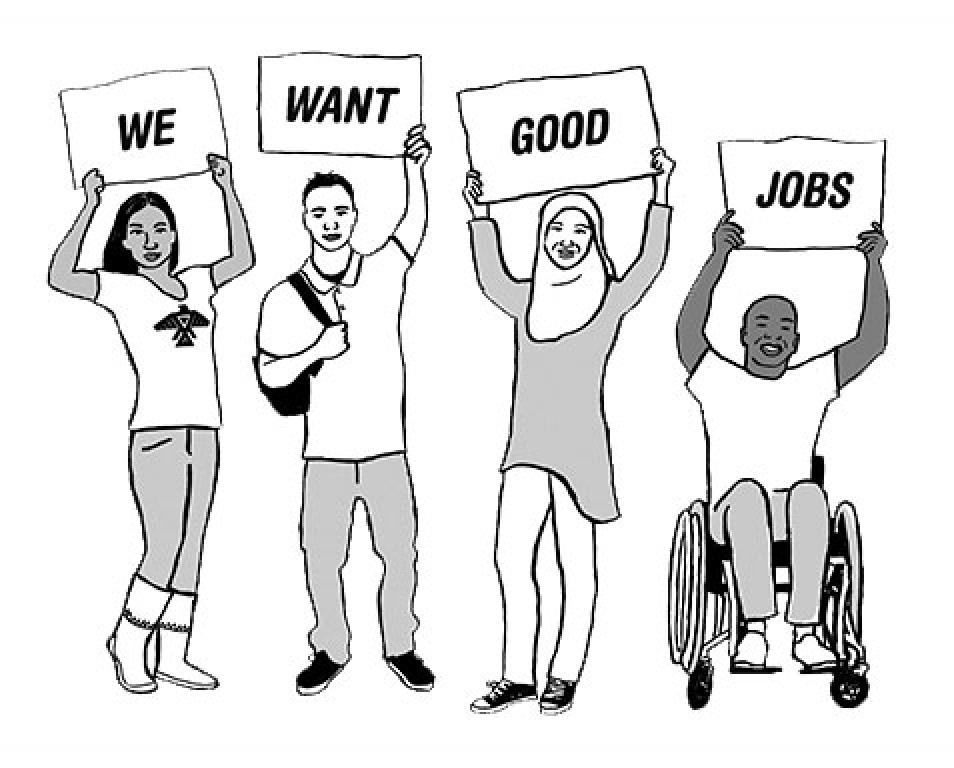
GOOD JOBS FOR ALL
IT'S TIME for the federal government to create secure employment for everyone.
Why It Matters- Communities are prosperous when the skills of all its citizens are utilized.
We all suffer from unemployment—whether employed or not. That’s because unemployment not only affects the individual that is unemployed but also their community. - Unemployment negatively impacts both the individual (mental health, lifetime earning potential, increased likelihood of divorce and suicide) and the community (breakdown of social wellbeing).
- Regardless of physical ability, background, or age—every Ottawa resident has something valuable to contribute to society.
- Everyone deserves a chance to earn a living so that they can build a better life for themselves and their families.
- How will you support a National Jobs Creation and Training Strategy which ensures stable jobs with good benefits?
- What steps will you take to increase employment for youth, immigrants, Aboriginal people and people with disabilities?
- Many people are underemployed in precarious jobs that do not provide a livable wage.
- Unemployment and underemployment is especially high for youth, Aboriginal peoples, immigrants and people with disabilities.
- This is a growing marginalization of racialized communities which results in the increasing racialization of poverty.
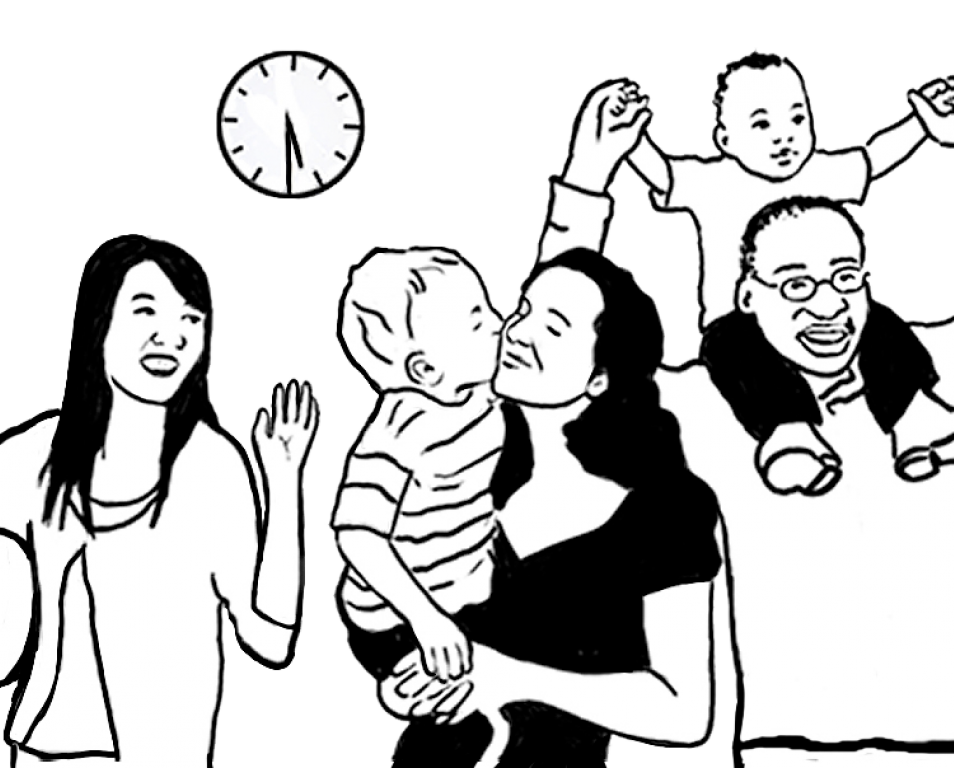
AFFORDABLE QUALITY CHILDCARE
IT'S TIME for childcare services that meet the needs of our families.
Why It Matters- Without a national childcare program, parents rely on a patch work of unregulated, expensive childcare.
- Without federal leadership and funds, provinces/territories have not developed the child care services needed.
- Quebec's childcare program at $7/day, going up to $15/day, has been shown to reduce poverty.
- Child care for all is a public good, a human right and part of building the equal, just Canada that we value
- Quality in child care programs is key for children’s development and well-being
- A variety of inclusive child care services and related policies are needed to support all families
- How will you promote the creation of publicly funded, affordable, quality childcare for all families?
- Will you support a national childcare program to make quality, affordable childcare available across the country?
- Where do the political parties stand on Child Care in the 2015 election?
- In Ottawa the cost of childcare is a crushing burden for most families.
- There are 94,770 children 0-9 years living in Ottawa but only 11,300 licensed child care spaces (6,344 subsidized).
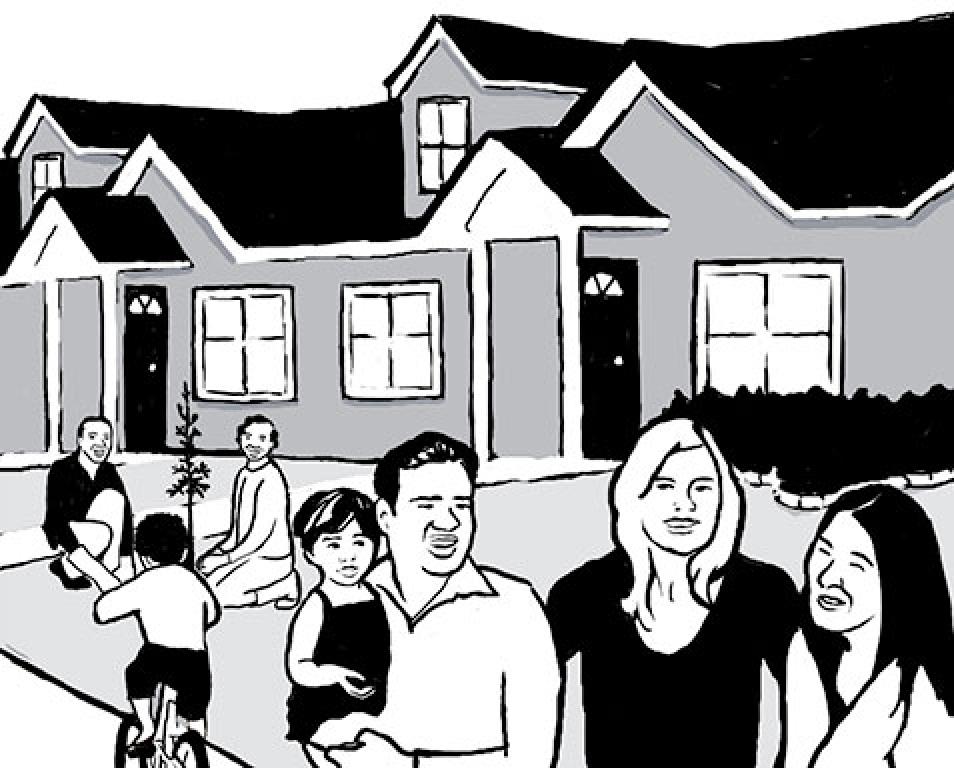
AFFORDABLE HOUSING
In a City for All, everyone has an affordable place to call home.
Why It Matters· Overall shelter use increased by 16% from 2014-2017. This is primarily influenced by the increase in family and newcomer shelter use.
· Up to 21% of single shelter users in Ottawa are single women.
· There is not enough affordable housing in Ottawa to meet demand, with over 10,000 people on the Centralized Waiting List for social housing in 2017.
· National trends indicate that housing costs significantly increase near rapid transit systems.
· High rent costs place many individuals at risk of homelessness or living in sub-standard conditions.
We Believe That- In a City for All, everyone has an affordable place to call home.
· Will you ensure that the City’s plan to reduce homelessness has specific actions, targets and money attached?
· Will you commit at least $12 million/year of City funding, over and above federal and provincial grants, to build new affordable housing?
· Will you ensure that 25% of new development is dedicated to affordable housing with a special emphasis on deeply affordable housing within 1km of rapid transit stations?
But the Reality Is Troubling· Overall shelter use increased by 16% from 2014-2017. This is primarily influenced by the increase in family and newcomer shelter use.
· Up to 21% of single shelter users in Ottawa are single women.
· There is not enough affordable housing in Ottawa to meet demand, with over 10,000 people on the Centralized Waiting List for social housing in 2017.
· National trends indicate that housing costs significantly increase near rapid transit systems.
· High rent costs place many individuals at risk of homelessness or living in sub-standard conditions.
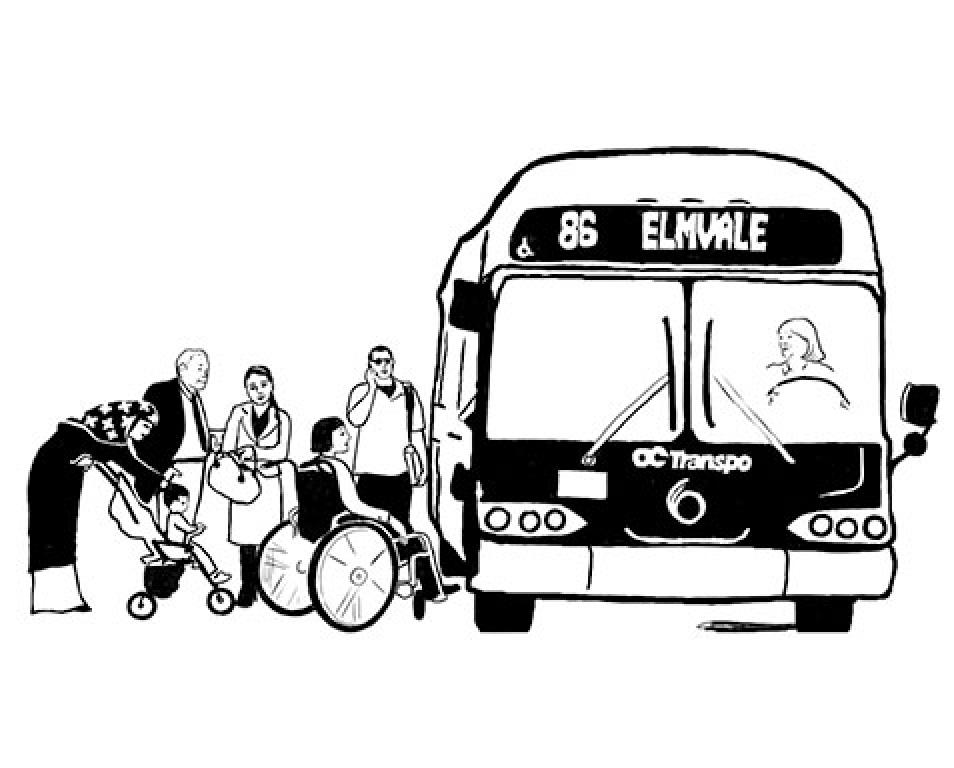
POVERTY REDUCTION
IT'S TIME for a federal poverty reduction strategy that ensures everyone is free of poverty.
Why It Matters- Research has shown that an increase of $1000 in annual income to the poorest 20% of Canadians would lead to 10,000 fewer chronic conditions, and 6,600 fewer disability days every two weeks. These social and health costs are coupled with losses in workforce productivity and economic output.
- Income insecurity and poverty are among the single greatest predictors of illness for Canadians. Poverty costs us dearly: roughly $25 billion each year alone in preventable healthcare, social service and judicial system costs across Canada.
To come
Questions to Ask- How will you support a National Poverty Reduction Strategy that ensures a liveable income, good jobs, health care and food for all, affordable childcare and housing?
- Over 4.5 million Canadians now live in poverty and, an average of 1 in 10 children lives in poverty.
- In First Nations communities, one in four children lives in poverty.
- Over 840,000 Canadians now rely on food banks each month to meet their basic needs. This dependence on food banks increased by 25% from 2008 to 2014.
- In Ottawa, 15.2% of residents live on low income while 1 in 5 children in Ottawa live in poverty.
- There is no strategy in place at the national level to address the needs of 1 in 7 people across Canada who lives in poverty.